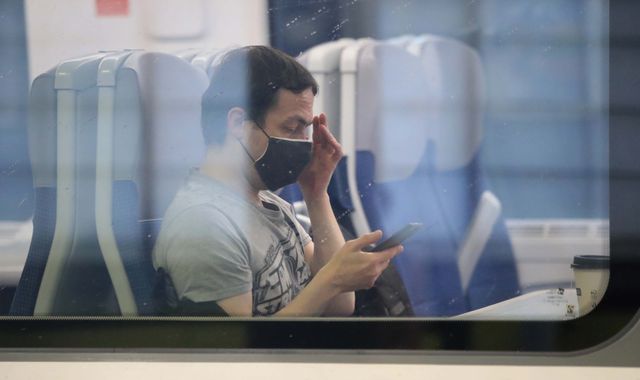After The Pandemic: Britons want a different post-virus economy but will they get it?
Written by News on 02/06/2020
The majority of Britons want the economy to be “significantly” different after the pandemic passes, according to a poll for Sky News.


A survey carried out by YouGov for Sky News underlines that most people in the UK see the crisis as an opportunity to change the nature of the economy, with many calling for permanently higher spending and borrowing in future years.
When asked about the structure of Britain’s economy – the types of jobs that people do, and the different things British companies sell and invest in – some 57% of Britons said it should be “significantly different to how it was before the coronavirus”. Only 25% said it should go back to how it was before the virus, with 17% unsure.
:: Listen to the Daily podcast on Apple Podcasts, Google Podcasts, Spotify, Spreaker
The polling also found that 49% of people thought the government should keep public spending high even if it meant a higher national debt, with only 20% arguing for borrowing to be cut back in the coming years.
The survey comes amid a growing debate about the nature of globalisation and the public finances, with many arguing that the changes during this recession – including dramatically higher public spending and reduced reliance on international trade – should become permanent in the future.
Former Labour chancellor Alistair Darling said that some things should indeed change in the coming years. He said the government should also consider whether to raise taxes on wealth, though he said existing taxes such as council tax would be better vehicles than new taxes.
“The inability or reluctance to tackle wealth has been a problem for a while now and I think the government does need to look at that, and council taxes are the most obvious thing,” Lord Darling said, pointing out that the valuation bands have not been changed since the early 1990s.
“Now don’t get me wrong, every government takes one look at changing council tax, then they remember the poll tax and say: ‘Right, what’s the next thing?’
“But it is so out of kilter now with reality. It needs to be looked at. And there’s a question of inheritance tax, which you know, it’s more noted for the fact you can avoid paying it rather than that they do pay it.
“I would strongly advise the chancellor there’s not really a time to spend too much time in the laboratory, seeing your thing work. There are things I think you can do now with the instruments at your disposal that would mean that we get through recovery.”
However, the former Conservative chancellor Norman Lamont said that while it was natural for people to call for changes to the status quo, the likely scale of change was exaggerated.
“There will be changes,” said Lord Lamont. “Obviously the consequences of this recession, this downturn, this freezing of the economy, will be with us for a long time.”
He said that he did not see the case for a wealth tax, calling it “a wealth-destroying tax” and adding: “I think life may end up more similar to how it is now than people imagine.
“We hear a lot of talk about social distancing becoming semi-permanent. Well, I think that’s frankly unreal. It’s completely against human nature, but it would also bankrupt whole swathes of the economy in this country, particularly the hospitality industry, which employs over three million people – more than the financial services industry.”
This week from today to Thursday, Dermot Murnaghan will be hosting After the Pandemic: Our New World – a series of special live programmes about what our world will be like once the pandemic is over.
We’ll be joined by some of the biggest names from the worlds of culture, politics, economics, science and technology. If you’d like to be in our virtual audience – from your own home – and put questions to the experts, email afterthepandemic@sky.uk
(c) Sky News 2020: After The Pandemic: Britons want a different post-virus economy but will they get it?






